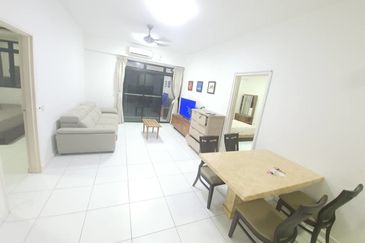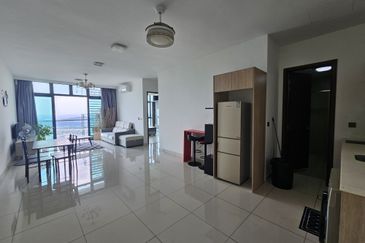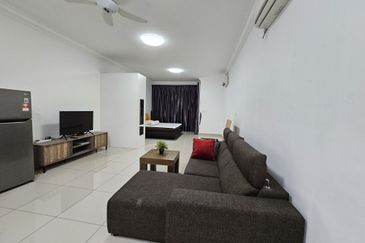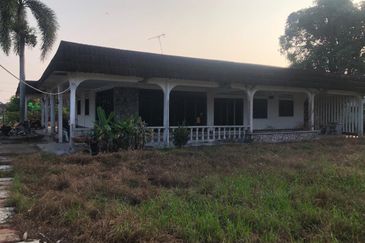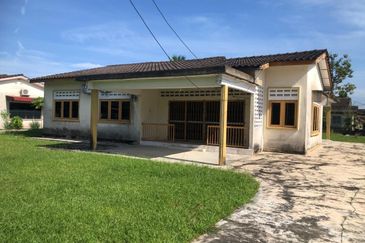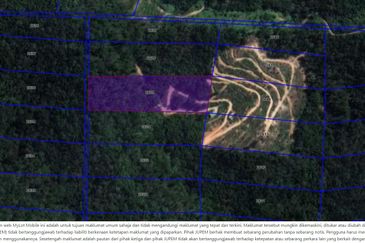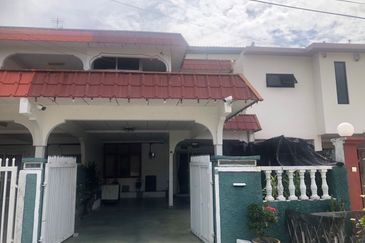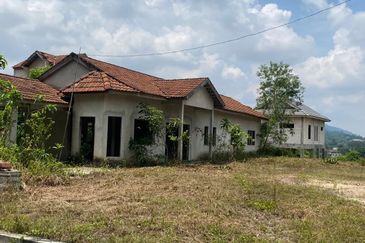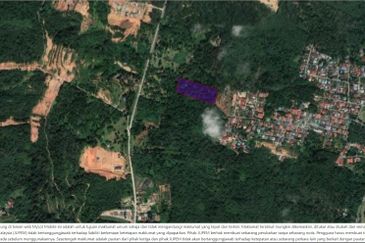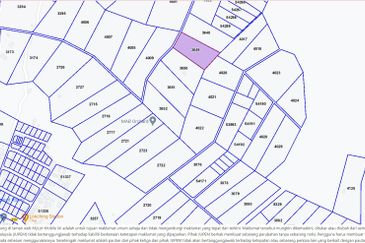The past 12 months have not been easy for the domestic property market. Transactions have declined and new launches have been scaled back. With Budget 2017 set to be tabled on Oct 21, some property players and experts are hoping for measures that will make it easier for first-time homebuyers to buy and help boost the property market. Read on to find out what they hope to see in the budget.
See Kok Loong (Director, Metro Homes Sdn Bhd)
• Easy financing and innovative products such as interest-only loans to support first-time homebuyers below 30 years old for the initial five years.
• Affordable housing schemes, such as Skim Perumahan Rakyat 1Malaysia (PR1MA) and Rumah SelangorKu, must be transparent to allow eligible Malaysians to own homes within their means at preferred locations.
• Higher Employees Provident Fund (EPF) withdrawals of up to 50% of total savings to buy houses and upon disposal, the sum must be put back into the account, similar to savings used for unit trust investments.
• Refund of Goods and Services Tax (GST) for commercial/industrial properties must be efficient.
• The stamp duty rates are outdated as property prices are much higher now and it should adjust accordingly:
1% for the first RM500,000;
2% for RM500,001 to RM2 million; and
3% for RM2 million and above.
• Luxury projects priced above RM1,500 psf should be allowed a higher percentage of foreign ownership, for example, 50% of the entire project. Transfer of ownership should be expeditious to create competitive foreign investment in luxury properties at the seafront or in the Golden Triangle.
• The threshold of foreigners’ purchases of residential properties should be standardised to avoid confusion. For example, RM1 million and above for those in Johor, Penang and the Klang Valley, and RM500,000 for those in other states.
• Malaysia My Second Home applicants should be given a RM500,000 threshold for property purchases so that Malaysia remains a competitive place for retirees to stay.
• The Real Property Gains Tax (RPGT) should stay as it was updated recently.
• Property transfers should be done efficiently so that the liquidity of the market will improve. In Hong Kong and Singapore, the entire process is done in less than a month, but in Malaysia, it takes a minimum of three to six months. The longer process also means high transaction costs/legal fees.
Samuel Tan (Executive director, KGV International Property Consultants (Johor) Sdn Bhd)
• Proper national definition and provision of affordable housing. The states, developers and purchasers understand them differently. This will lead to a mismatch, oversupply or undersupply, although the parties concerned think they have played their role.
• New rulings on GST for purchases of commercial properties are trifling. This does not encourage healthy transactions. The wide-cast net will inadvertently create an unreal pricing to avoid GST. The August 2015 ruling should be removed.
• More emphasis on the housing needs of the M40 (middle 40% income bracket) by lowering the development and compliance costs. In major cities, houses priced from RM250,000 to RM500,000 and in smaller towns, those priced between RM150,000 and RM300,000 to be given importance.
• Review the stamp duty rates for properties affected by GST.
• More new infrastructure like roads and highways to make cheaper land available for development.
Lee Chee Seng (Chief operating officer, SkyWorld Development Sdn Bhd)
• Lower corporate and personal income tax to offset GST and boost the nation’s spending power.
• Allow first-time house buyers obtain 100% loans for properties priced below RM500,000.
• Continue 50% of the memorandum of transfer stamp duty for properties priced below RM500,000.
• A more impactful tax incentive for developers who invest in Industrialised Building System (IBS) and green building designs.
• Reduce the RPGT.
• Allow the Developer Interest Bearing Scheme (DIBS) for first-time homebuyers.
• More relaxed lending guidelines for the purchase of the first two properties.
Sarena Cheah (Managing director, Property division (Malaysia and Singapore) of Sunway Bhd)
• The government should continue with policies that encourage property purchases and ownership. For example, initiatives to help first-time homebuyers should be extended and continued.
• The government should reintroduce tax relief for interest on individuals’ housing loans. This was previously provided for properties purchased between March 2009 and December 2010. This will raise the disposable income and, in turn, increase the ability of individuals to buy or upgrade their properties. Similar tax relief is also available in countries like Australia and the UK.
• Increase the allocation for EPF Account 2 from the current 30% as it will allow property purchasers to withdraw a bigger amount from this account to help with the downpayment, especially for those who have been granted a lower margin of financing from the banks. Property ownership is also a form of savings and will not negatively impact EPF contributors or their retirement plan.
Teh Lip Kim (Managing director, Selangor Dredging Bhd)
• Relax the rules for home loan approvals, especially for first-time house buyers. As property prices increase, the tenure for housing loans should be 35 years, thus making it easier for this group to invest earlier.
• An element that can cushion developers’ cost is the exemption of GST for construction costs for residential properties. Currently, the 6% tax is imposed on the work carried out by main contractors and subcontractors. In the event that the tax is waived, the construction costs would be lower and this would then be reflected in the reduced cost of a property.
• A change in the method by which land is classified for development could impact the industry. Currently, commercial properties are built based on plot ratio per acre, whereas residential properties are built based on density per acre. Based on the density method, developers are restricted by the number of units they can build and they would build bigger units to maximise on the method.
• On the other hand, based on the plot ratio method, the number of units that can be built would depend on the size of the buildable land. This would allow developers more flexibility in determining the sizes of the houses to be built, depending on market demand.
• In Singapore, the plot ratio method is used for both commercial and residential properties. The authorities have guidelines to ensure that the properties are of decent sizes so that the residents can live comfortably.
• The requirement for a certain number of parking bays in developments within a certain radius of light rail transit/mass rapid transit stations should be reduced to one parking lot per unit. Property developers would not have to build too many park bays for their developments and this would also encourage those who live close to these stations to use public transport.
Anwar Syahrin Abdul Ajib (Managing director/CEO, UEM Sunrise Bhd)
• The government should explore ways to help more Malaysians own homes. We should target a home ownership rate of above 80%. In 2010, it was only 72.5% (based on the last population and housing census).
• Allow higher withdrawal of EPF savings for downpayments for home purchases as the main challenge faced by the property industry is not the lack of interest from homebuyers but rather the tight lending environment. Suggestions are to tweak the percentage of allocation for Accounts 1 and 2 from 70% to 60% and from 30% to 40% respectively, and raise the withdrawal limit for first-time homebuyers to 20% of the house price.
• Grant tax incentives for the development of affordable housing for the lower-income group, especially in cities. The government to provide the land and infrastructure while the developers carry out the construction.
• Reduce the RPGT rates for foreigners. The number of foreign buyers is relatively small. The current 30% tax rate for foreigners in the first five years is too restrictive and discourages foreign ownership of property. We suggest changing this and bringing it to the same level as that for locals, with the exception that after the fifth year, foreigners pay a 5% RPGT (whereas citizens pay nothing).
• Lower the minimum price for foreign purchases from RM1 million to RM700,000, with particular consideration for areas like Mont’Kiara, KLCC and Iskandar Puteri. There are properties in the said areas that are less than 800 sq ft in size and priced below RM1 million. Malaysians may not be interested in buying or staying in such small units at that price, but foreigners would.
• Land used for commercial, industrial and development purposes should be exempted from GST.
James Wong (Managing director, VPC Alliance (M) Sdn Bhd)
• The main problem concerning affordable housing is that most of the demand is in Penang, southern Johor and the Klang Valley, but the land in these areas is too expensive to build homes priced below RM400,000. The government and government-linked companies own a lot of land, which can be monetised by forming joint ventures with developers to build affordable housing.
• Promote rent-to-buy schemes and reduce the rent-to-own monthly payments offered by PR1MA to a more affordable amount. In order to encourage more developers to build affordable housing, the government should allow higher density ratios and provide incentives such as a reduction in developers’ contributions for utilities. This will lower the cost of development.
• As insurance companies have ample cheap funds, the government should provide incentives to them, such as tax rebates and tax holidays, to encourage them to lend to homebuyers, especially first-time buyers.
• A little more than 10% of the population will be senior citizens by 2020. The government is encouraged to have a master plan for senior citizen accommodation and aged care facilities. It should provide incentives such as tax holidays for developers, investors and operators for this purpose.
• Offer incentives to developers who adopt IBS and prefabricated concepts to speed up construction.
• Encourage house owners and developers to adopt green building features such as rainwater harvesting systems, solar systems, electricity saving measures and air purifying systems. The cost of such installations should be tax deductible.
• As the government is promoting homeownership, it should provide tax relief of RM6,000 for monthly instalments for first-time house buyers.
Sulaiman Akhmady Mohd Saheh (Director of research and strategic planning, Rahim & Co International Sdn Bhd)
• With the implementation of GST and its expected contribution to the government, personal income tax should be lowered, especially for the B40 and M40 groups.
• Education should remain a top priority in order to improve the nation’s Global Competitiveness Index (Malaysia is currently ranked 25th, compared with 18th last year). This should be viewed as a long-term strategy.
• Buyers are hoping for GST exemption for the secondary market and non-residential properties.
• Enhance the delivery of various programmes for affordable housing.
• The suggestion to let developers obtain licences to lend to buyers requires a detailed assessment to provide a comprehensive and sustainable solution in the long run. We should learn from the US subprime crisis.
Sarkunan Subramaniam (Managing director, Knight Frank Malaysia)
• DIBS should be reintroduce for first-time homebuyers.
• Relook the rule where one’s monthly loan/financing instalments and commitments should not exceed one-third of his/her monthly salary, particularly for first-time homebuyers.
• Profile the buyer and his/her earnings potential — lower initial repayments and higher repayments at later stage of loan tenure.
• Increase the withdrawal amount from EPF Account 2 by 10% and raise its allocation from 30% to 40% for the purchase of the first home. This may, however, affect the retirement savings.
• Reintroduce the tax relief for interest expended to finance purchases by first-time homebuyers (previous tax relief was up to RM10,000 a year for three consecutive years, applicable to sales and purchase agreements signed between March 10, 2009 and Dec 31, 2010).
• Introduce programmes similar to PR1MA’s rent-to-own programme.
• Such programmes should be targeted at first-time homebuyers.
• The government should provide subsidies to the lower-income group to rent/purchase homes.
• The programmes should be applicable to existing and completed projects where there is sustained demand.
Erick Kho (President, Malaysian Institute of Estate Agents)
• GST exemption for all secondary property transactions to avoid increasing the cost of property with each sale transfer.
• Lower the interest rate as the return on investment for properties is 3% for most sectors.
• Encourage banks to provide housing loans to first-time homebuyers and genuine purchasers.
• Reduce the stamp duty for sales and purchase agreements and bank loan agreements to lower the costs of property transactions.
• The government should draw up a housing policy and set up a housing development board to help ease the shortfall of 3.4 million homes.
• Have certainty in regulatory costs and a strict adherence to the delivery of housing units.
• Building affordable homes should be the sole responsibility of the government. It should be without private sector involvement.
• Build government housing for rent to the poor until they reach a certain income level.
• Control the costs of building materials.
Edward Chong Sin Kiat (Managing director, IJM Land Bhd)
• Affordable housing and end-financing are important issues that need a multi-stakeholder approach to tackle. There have been very good initiatives by the government to address housing affordability and meet the increasing housing needs. The government’s effort to promote homeownership with the MyDeposit Scheme is certainly commendable and it demonstrates that it is taking the issue of housing affordability seriously. However, further support from the government such as increasing the allocation for the MyDeposit Scheme from the current RM200 million and extending this scheme to homes priced up to RM600,000 per unit will push its sustainable homeownership agenda forward.
• The government should provide incentives to property developers to build the much-needed affordable homes and reduce or waive development charges and contributions.
• Reintroduce DIBS to help first-time homebuyers during the construction period, thus reducing the burden of loan servicing while still paying rent.
• More flexible, friendly financing/easy payment schemes should be introduced for affordable housing as well as for first-time homebuyers and first-time upgraders.
Previndran Singhe (Group CEO and founder, Zerin Properties)
• Provide more tax incentives for the tourism sector, such as allowances for training and skills upgrade. This sector is one of the biggest employers and contributors to the country’s gross domestic product. Additionally, more funds should be allocated for Tourism Malaysia to help in infrastructure development and the promotion of Malaysia.
• Provide special tax incentives and allowances for eco start-ups that use green technology or biotechnology in Cyberjaya. This will benefit venture capital and private equity businesses as the infrastructure is already in place. Also, offer more incentives for financial technology businesses.
• The finance and banking sector should ease the property loan application restrictions.
• Fast-track the development of public transport services in second-tier cities and towns as well as bus rapid transit and trams in major towns like Ipoh, Taiping, Kota Kinabalu and Kota Baru.
• Allocate funds for basic sports facilities to be managed by associations. This should be encouraged during the planning stage by developers.
• Continue with the Economic Transformation Programme, especially to make Kuala Lumpur one of the world’s most liveable cities.
• Give developers tax deduction for open space development and public facilities like sports centres and parks.
• Allocate funds for open space developments in towns and cities similar to the Taman Tugu park project.
Christopher Boyd (Executive chairman, Savills Malaysia)
• Banks should be allowed to formulate their own house financing policies and packages and lend as they see fit. All controls over such lending policies should stop. There is an ever-present risk in over-lending but the banks have been in this business for many decades now and with all the relevant data becoming increasingly accessible, maybe they should be allowed to decide on their own lending parameters.
• Amend the Strata Title Act to allow redevelopment to take place upon 80% agreement of title owners, not 100%. After all, Britain left the European Union on a tiny majority vote! Seriously, we have acres of run down tenements in areas like Sungai Besi and they could be redeveloped into really convenient affordable city homes. But urban regeneration is impossible when every potential project can be thwarted by a selfish minority. Then, throw in some tax incentives to encourage the redevelopment of pre-1970s flats.
• Provide more tax incentives and have a national policy to protect heritage buildings.
• Provide tax incentives to promote the development of resort accommodation. Are the beaches of Koh Samui and Bali so much nicer than Sabah’s or Langkawi’s? Of course not, but where are the luxury villas renting for US$2,000 a night? We only have a handful in the country and are suffering massive loss of tourist revenue as a result.
Real Estate And Housing Developers’ Association Malaysia

• Provide financial schemes or packages to help buyers at the early stage of home purchase. These should be for households with income of RM10,000 and below, houses priced at RM500,000 and below, and properties that are under construction. Another possibility is to have the house prices include the interest on mortgage during the construction period. These packages should not be applicable to cash buyers. Extend the MyDeposit Scheme with a higher allocation to help more first-time house buyers address the issue of high entry cost.
• The bumiputera quota and discount rate should be standardised for all states. The bumiputera quota release mechanism should be standardised and transparent. No imposition of new conditions on titles for bumiputera units as this will create restriction-in-interest on properties and be viewed by the market as “un-preferred” properties. Bumiputera discounts should not be applicable for high-end properties.
• The government should review and lower or abolish unnecessary charges or requirements with the objective to reduce the cost of doing business so that savings can be passed on to house buyers in the form of affordable housing. Utility companies such as Syabas, Indah Water Konsortium, Tenaga Nasional Bhd and Telekom Malaysia should not impose charges on developers. They should recover their capital through tariffs based on consumption and federal funding. The government and local authorities should reduce the application processing time as this will reduce holding costs.
• The government should use state land to develop affordable housing. Convert low-cost housing quota, which is low in demand, to affordable housing, which has higher demand.Review the planning requirements as the current planning policy for residential developments based on density should be changed to plot ratio to enable subdivision of floor area into smaller units. The distribution and resale of subsidised housing should be regulated to benefit only deserving parties.
• Increase the allocation for the IBS promotional fund. The government and its agencies must ensure that their projects adopt the IBS concept to enjoy economies of scale. This will help reduce costs, making it more viable for IBS component manufacturers to start operations.Provide funds to SMEs to make IBS products and give special incentives to accelerate the adoption of IBS.
• Affordable housing (selling price of up to RM500,000) and controlled properties should be given relief under the GST (Relief) Order to mitigate the rising cost of construction.
This article first appeared in City & Country, a pullout of The Edge Malaysia Weekly, on Oct 10, 2016. Subscribe here for your personal copy.
TOP PICKS BY EDGEPROP
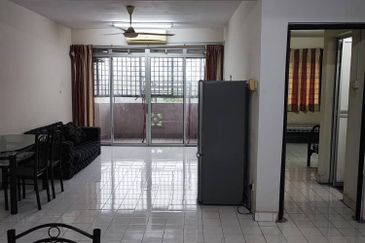
Apartment Tanjung Puteri Resort
Pasir Gudang, Johor

Bandar Baru Permas Jaya
Permas Jaya/Senibong, Johor
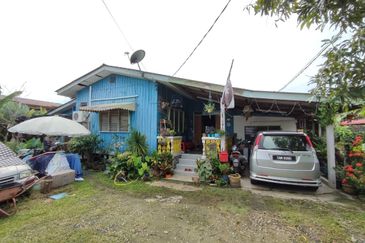
Kuala Terengganu Golf Resort
Kuala Terengganu, Terengganu

Central Residence, Sungai Besi
Salak Selatan, Kuala Lumpur



